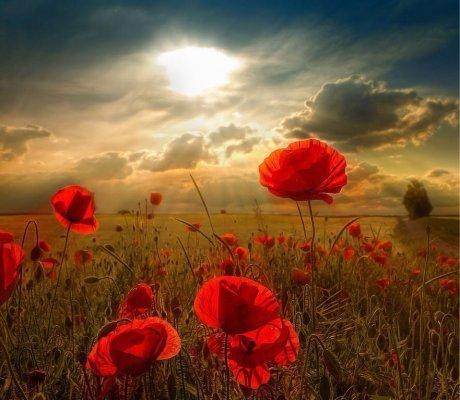
The 11th November, is Remembrance Day, also known as Armistice Day. It marks the day World War One ended, at 11am on the 11th day of the 11th month, back in 1918. A two minute silence is held at 11am to remember the people who have died in wars. The first two minute silence in Britain was held on 11 November 1919, when King George V asked the public to observe a silence at 11am. This was one year after the end of World War I. He made the request so “the thoughts of everyone may be concentrated on reverent remembrance of the glorious dead”.
Each year, on the second Sunday in November we have Remembrance Sunday. In towns, villages and cities across the country and in many Commonwealth countries there are ceremonies at war memorials, cenotaphs and churches, to remember and honour those who gave their lives in war.
The Royal Family and top politicians gather at The Cenotaph in Whitehall, London, for a memorial service. The anniversary is used to remember all the people who have died in wars, not just World War One.
A Canadian doctor, John McCrae, wrote a poem in 1915 about the devastation he saw in the Flanders area of Belgium and in Northern France during WW1. The land lay destroyed by terrible battles, and many men were buried there. But despite the devastation of battle, the wild poppies survived. Dr McCrae’s poem was published in Punch magazine, and the poppy became the symbol of remembrance.
However it is the poem of Laurence Binyon (For the Fallen) that is often quoted in remembrance services:
“They shall grow not old, as we that are left grow old:
Age shall not weary them, nor the years condemn.
At the going down of the sun and in the morning
We will remember them.”
Leading up to Remembrance Day and Remembrance Sunday we buy small paper “poppies” to show that we are remembering the sacrifices of those who died, and also to raise money to support serving and ex-Service personnel and their families. People who have lost a loved one in service often put small wooden crosses near war memorials around the country, and local branches of the Royal British Legion lay wreaths.
Another thought provoking quote is that written by John Maxwell Edmonds, the creator of celebrated epitaphs:
“When you go home, tell them of us and say, for their tomorrow we gave our today”.
Originally written 11 November 2015